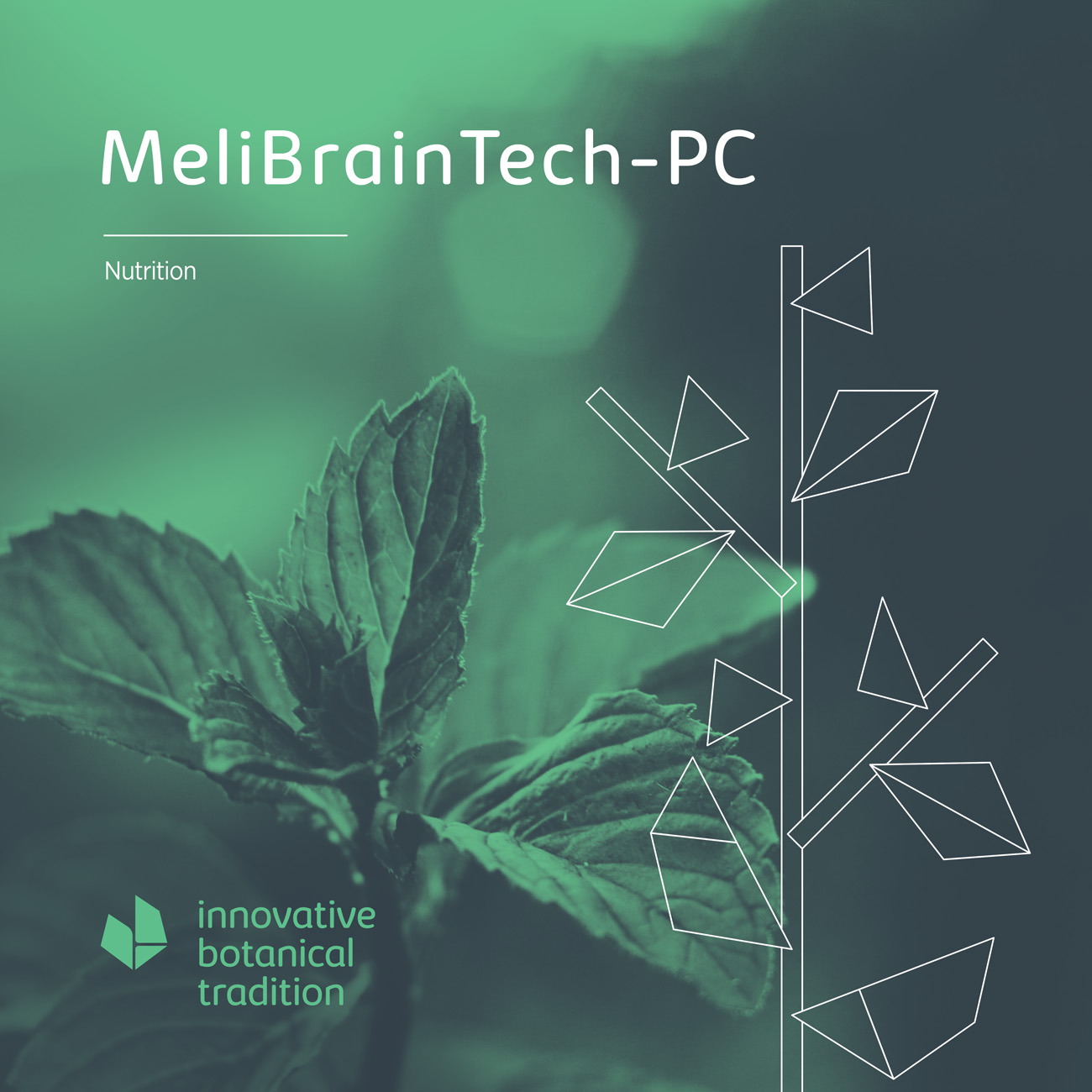MeliBrainTech-PC
From nature to mental well-being
features
- Relax and mental well-being
- Normal mood
- Antioxidant
advantages
- Neutral taste and color
in vitro tests
- Anti-inflammatory activity (iNOS, COX2, IkB-α, TNF-α, IL1-β)
- Antioxidant activity (ROS inhibition, protection of mitochondrial morphology)
- Protective activity of dopaminergic neurons in Parkinson’s related disorders
- Neuroprotective activity

specifications
The Mother Plant of Melissa officinalis, able to generate specific substances useful for its growth and development within an ideal phytocomplex, has been carefully selected and certified through the DNA fingerprinting technique. Melissa officinalis, also known as lemon balm, has a traditional medical application centered on the plant’s essential oil components and rosmarinic acid for its relaxing properties. Studies have shown that traditional relaxation effects may be associated with elevated levels of the neurotransmitter GABA (γ-aminobutyric acid) by inhibiting GABA-transaminase (GABA T), an enzyme that degrades GABA. In addition, rosmarinic acid is able to inhibit the enzyme acetylcholinesterase, which degrades the neurotransmitter acetylcholine, related to Alzheimer’s disease.
| Botanical name | Melissa officinalis (L.), DNA fingerprint certified |
| Polyphenol content | Total polyphenols expressed as rosmarinic acid equivalents ≥ 5% P/P by UPLC-DAD |
| Aspect | Light brown powder, distinctive smell |
| Recommended dosage | 100 – 200 mg/day |



